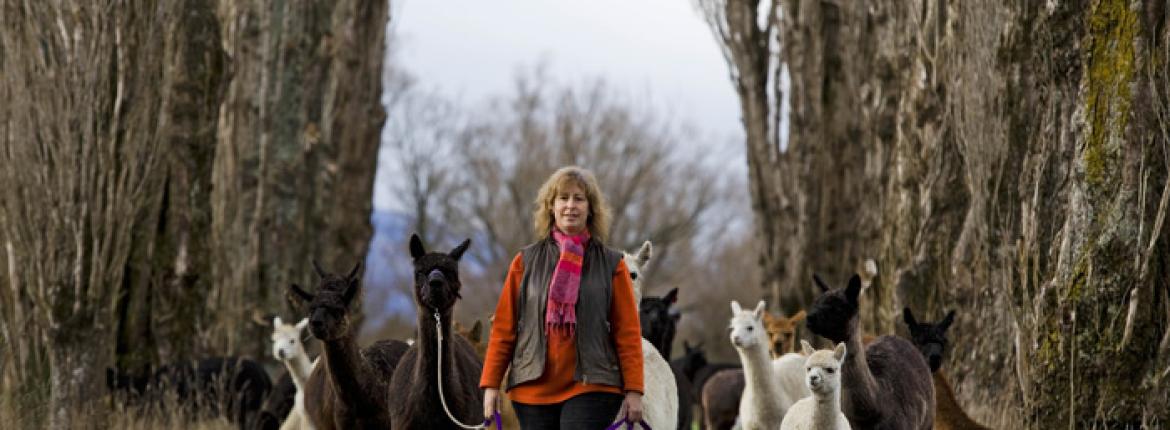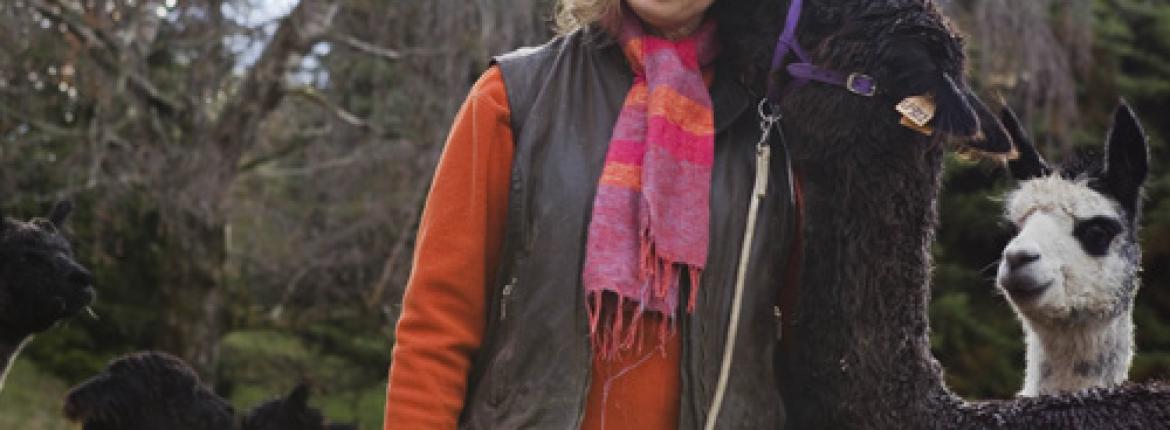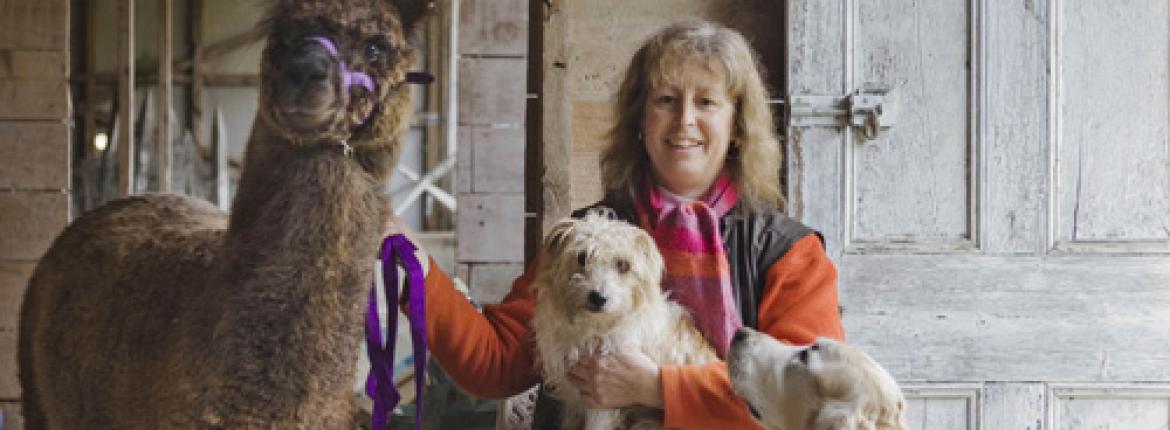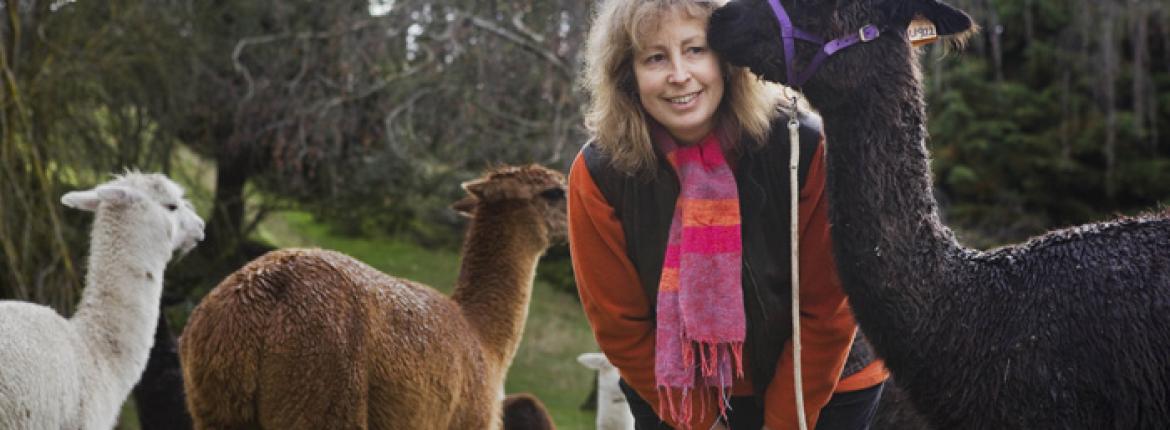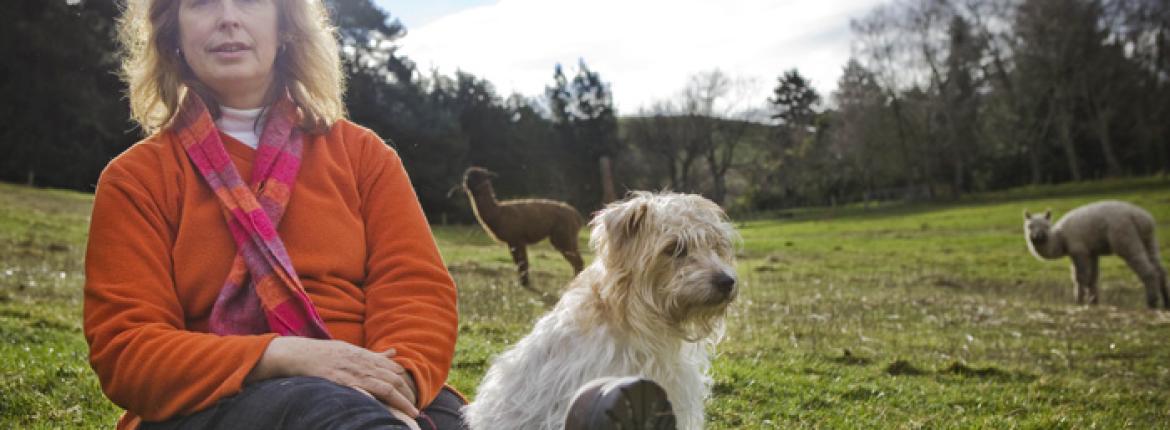“I had to get used to four legs and a rather longer neck. But I had confidence even at an early stage about assessing animals’ well- being. If anything needed a jab, I was happy to do all that, whereas if you were from, say, an accountancy background, it might take a while to get your head around that.” However, two of Kate’s female alpacas are very protective of their newborns and are inclined to spit if she ventures too close... not something she ever experienced in a labour ward.
“If I need to go near their cria I wear a jacket.”
Kate decided to study midwifery in the UK after working with Afghan women refugees in Pakistan during a five-year stint as an aid worker in third world countries. She then trained in neonatal intensive care nursing in London, eventually returning home to spend five years in the neonatal intensive care at Christchurch Hospital.
“I had been working with people for 20 years in quite intensely emotional situations, some positive, some sad. I just needed a break from that, which is why I wanted to move to the country.”
She bought a former battery hen farm near Sheffield and began casting around for ways to make a living from her lifestyle block, ruling out horticultural crops like berries and peonies as too labour-intensive to handle on her own.
“I came across alpacas at a Pet Expo and someone told me they were part of the camel family. The friend I was with said ‘That’s it, that’s what you’re going to do,’ because I had a thing about camels from when I was working with the Afghan refugees and we used to get gypsies going through on camels. It was a bit of a joke; I have camel candle sticks and a camel rocking chair.” Kate was unfazed about taking on animals she knew little about.
 “I had ponies as a kid, so I had animal sense. The challenge for me was that I had to make all the decisions. You have to be good at everything, take care of your books, your animals and your land, so that side of it has been a real learning curve.”
“I had ponies as a kid, so I had animal sense. The challenge for me was that I had to make all the decisions. You have to be good at everything, take care of your books, your animals and your land, so that side of it has been a real learning curve.”
She travelled to Peru to select some of her early stock and her Pejo Stud is named for her parents. “My father had just died and that’s where I had the money to buy my first dozen females as base stud stock. I wanted to acknowledge him and Mum, so the Pe comes from Peter and the Jo from Joan.”
Stud female alpacas sell for up to $12,000 and a good male can fetch $30,000, and Kate’s breeding skill has been recognized with the export of Pejo Stud alpacas to Norway, England, Holland and Germany. She is also regularly invited to judge at alpaca shows in New Zealand and Australia.
Her focus has always been on black alpacas simply because she likes the look of them. She says the advantage is that black is a popular clothing colour and black fibre doesn’t need dying before it’s spun and woven into cloth.
“I used to be obsessed with getting black, but now I like getting all the other rich colours. There’s this lovely chocolate black, another like dairy milk, and one colour I call espresso because it’s really the colour of black coffee.”
While she enjoys her animals, Kate decided she wanted a little more ‘people contact’, so two years ago she retrained as a reflexologist and practises part-time at a natural health centre in Darfield.
“I couldn’t do midwifery and the alpacas because they both need 100% commitment, but if there’s a crisis at home on the farm, I can cancel reflexology appointments.”
Reported by Amanda Cropp for our AA Directions Spring 2024 issue

